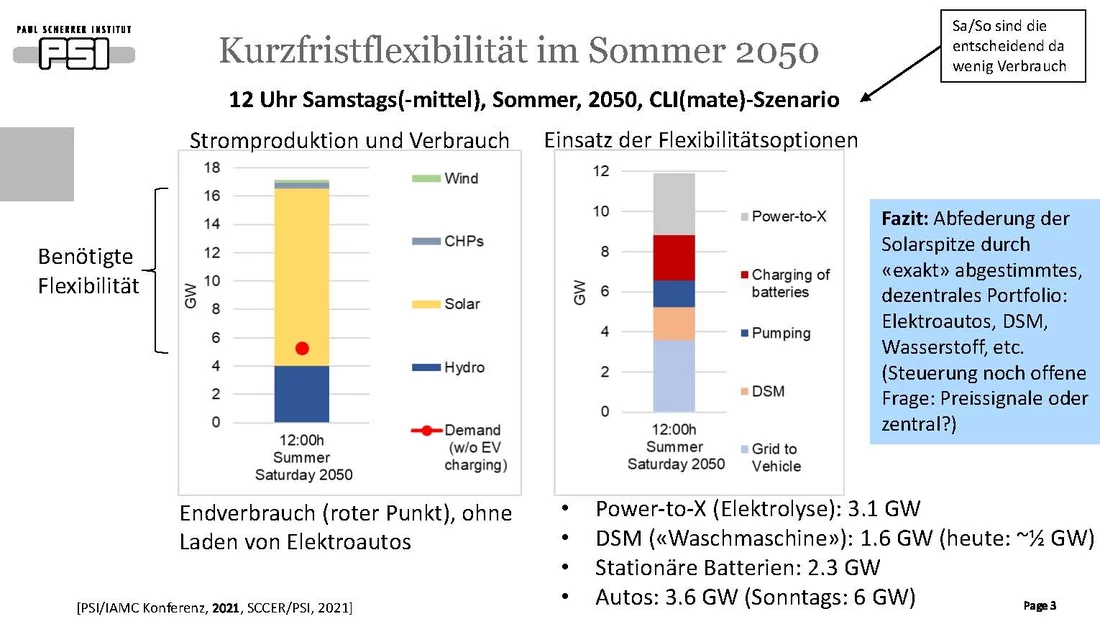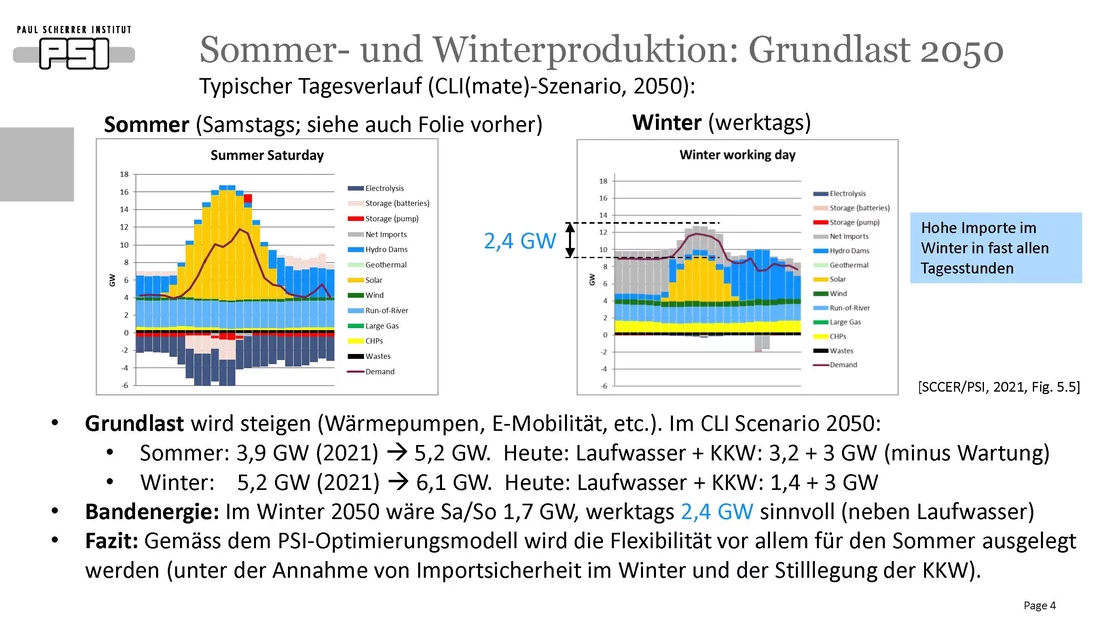Baseload energy refers to the minimum electrical power demand that is consistently required by a region or country. This demand, which is present around the clock in every season, can create obstacles — and costs — when it comes to the decarbonization of energy systems.
In the new report “Future demand for flexibility and the significance of baseload energy in Switzerland,” PSI-LEA researchers Martin Densing, Evangelos Panos, Tom Kober, and Russell McKenna examine the role of baseload energy in Switzerland's energy system and discuss the challenges of transitioning to a mostly CO2-free system. It is based on long-term energy scenario analysis to achieve net-zero CO2 emissions in Switzerland under different contexts regarding energy technology development, energy market integration and security of supply, quantified using PSI-LEA’s Swiss TIMES energy systems model.
Analyzing the role of demand-side management in the energy transition, the report lays out possible strategies Switzerland could employ to reduce winter electricity imports, and opportunities for cost optimization by mixing flexibility options (such as storage plants, batteries, and hydrogen). Finally, the authors emphasize the importance of analyzing developments abroad and their implications for the Swiss energy system.
The report focuses on flexibility in the electricity sector, the extent of which is partly determined by the profiles of heat energy-service-demands. In the Swiss TIMES energy system model, the thermal demands are cost-optimally shifted diurnally and seasonally by storage in decentralized water tanks and by geothermal probe heat storages. The publication “An assessment of energy system transformation pathways to achieve net-zero carbon dioxide emissions in Switzerland” by PSI-LEA members Evangelos Panos, Ramachandran Kannan, Stefan Hirschberg, and Tom Kober complements the report by providing an analysis of system-wide flexibility measures, including thermal seasonal and diurnal storage.
This research was carried out within the Swiss Competence Centers for Energy Research - Joint Activity Scenarios and Modelling (SCCER-JASM), funded by Innosuisse. It provides the basis for further research on this topic by the Swiss Center of Excellence on Net Zero Emissions (SCENE) joint initiative of the ETH Domain. This continuing research, using the energy systems model STEM, is at a higher spatial and temporal resolution and includes consumer preferences regarding the willingness to pay for clean technologies for heating, hydrogen, electricity supply and storage, as well as the willingness to accept provisions from their side for flexibility services (for example load shifts).
Click here to read “Zukünftiger Flexibilitätsbedarf und Bedeutung von Bandstrom in der Schweiz” (in German with an executive summary in English).


